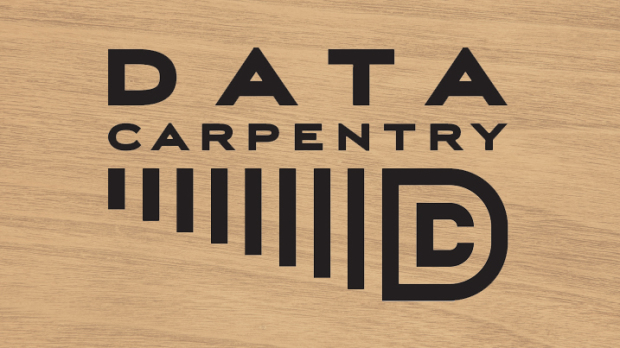
Reposted from: https://fsulib.wordpress.com/2017/07/20/data-carpentry/
My name is Rachel Smart and I’m a graduate assistant for Digital Research and Scholarship. I was adopted by DRS in mid-March when the Goldstein Library was reamed of its collection. It was devastating for the 2% of the campus who knew of its existence. Bitterness aside, I’m very grateful for the opportunity I’ve been given by the DRS staff who warmly welcomed me to their basement layer; here I’m being swiftly enthralled by the Open Access battle cry. The collaborative atmosphere and constant stream of projects never fails to hold my interest. Which leads me to Data Carpentry…
In May of this year, I met with Micah Vandegrift (boss and King of Extroverts) regarding my progress and the future direction of my work with DRS. He presented me with the task of running a data workshop here in our newly renovated space. Having never organized something this scale before, I was caught off guard. However, I understood the importance and need for data literacy and management trainings here on campus, and I was excited by the prospect of contributing to the establishment of a Data Carpentry presence here at FSU. Micah was kind enough to supply me with a pair of floaties before dropping me into the deep end. He initiated first contact with Deb Paul from iDigBio, a certified Data Carpentry instructor, here on campus and I joined the conversation from there.
It took a few weeks of phone calls and emails before we had a committed instructor line-up, and we were able to apply for a self-organized Data Carpentry workshop in April. Instructors Matthew Collins, Sergio Marconi, and Henry Senyondo from the University of Florida taught the introduction to R, R visualizations, and SQL portions of the workshop. I was informed that you aren’t a true academic librarian until you’ve had to wrestle with a Travel Authorization form, and I completed them for three different people, so I feel thoroughly showered in bureaucratic splendor. However, the most obstructive item on my multipart to-do list of 34+ tasks was finding the money to pay for food. DRS has an event budget with which we paid the self-hosting fee and our instructors’ traveling expenses, but we were not allowed to use it for food. This delayed the scheduling process, and if it weren’t for the generous assistance from iDigBio, we would have had some very hungry and far fewer attendees. If I were blessed with three magical freebies for the next potential Data Carpentry event, I would use the first to transform our current event budget into food-friendly money, and I would save the other two in case anything went wrong (ex, a vendor never received an order). This may seem overly cautious, but just ask anyone who had to organize anything. We are perfectly capable of completing these tasks on our own or with a team, but some freebies for the tasks which fall beyond our control would come in handy.

The event ran smoothly and we had full attendance from the 20 registered attendees. As busy as I was in the background during the event, attendees came up to me and let me know how well the workshop was going. There were also comments indicating we could do things a little differently during the lessons. I think most of the issues that sprung up during the event were troubleshooting software errors and discrepancies in the instructions for some of the lessons, for example, the SQLite instructions were written using the desktop version of the program and not the browser plugin everyone was using. The screen we used to display the lessons and programming demos was the largest we could find, but it was still difficult for some people to see. However, adjustments were made and attendees were able to continue participating.
The most rewarding element of the experience for me were the resulting discussions among participants during planned collaboration in lessons and unplanned collaboration during breaks and long lunch periods. The majority of our participants have various backgrounds in the Biological Sciences, but as individuals they had different approaches to solving problems. These approaches frequently resulted in discussions between participants about how their various backgrounds and research impacted their relationship with the tools and concepts they were learning at Data Carpentry. On both days of the event, participants came together in our conference room for lunch and rehashed what they had learned so far. They launched into engaging discussions with one another and with DRS staff about the nature of our work and how we can work together on future initiatives. This opportunity to freely exchange ideas sparked creative ideas relating to the Data Carpentry workshops themselves. On the second day, an increased number of participants brought their own project data to work with in workshop exercises.
The future of Data Carpentry here at FSU looks bright, whether I will be there for the next workshop is unknown. Thank you, Deb Paul, Micah Vandegrift, Emily Darrow, Kelly Grove, and Carolyn Moritz for helping me put this workshop together, and thank you to everyone who participated or contributed in any way.







